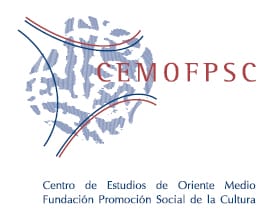
The World Water Day is celebrated worldwide on March 22 this year and aims to raise awareness for an improved cooperation on water management and the challenges that it’s facing.
The priority area of action of the FPSC is the Middle East, where the problem of water scarcity causes serious concerns.
One of the cross-cutting themes of the FPSC´s Center for Middle Eastern Studies (CEMOFPSC) is Water in the Middle East and its implications for peace within the area.
In the occasion of the World Water Day, the CEMOFPSC has organized a Round Table open to the public with the title “Coping with water scarcity in the Palestinian Territories and Jordan: the use of non-conventional sources in agriculture” which was held on Monday 8 April at 11:00 in the Auditorium of the Casa Arabe in Madrid.
The participants were: Abdellaif MA Mohammed, Vice Director of PARC (Palestinian Territories), Basem Shamoun, Project Manager at Jordan Hashemite Fund for Human Development, JOHUD (Jordan), Macarena Cotelo, Project Manager of the FPSC, Marco Rotunno, Coordinator FPSC Project in Amman, and Manuel Cimadevilla, Project Coordinator of the FPSC in Jerusalem.

On 28th of July, 2010, the UN General Assembly declared the access to safe drinking water and sanitation as a human right. However, the right to water in context of the right to food is a complex issue: the drinking water for human consumption and cooking is ensured, although it does not reach the minimum level of water needed for food production in arid and semi-arid regions.
Therefore, it is urgent to implement policies for efficient use of all conventional sources of water and especially to use and foster strategies from unconventional sources.
Among the unconventional sources are sources like rain water harvesting, which is vital, especially in Palestine. Another unconventional source is the household water that contains the human waste and is known as gray water. This water can be treated and used for activities that do not require portable water.
The panel is also raising an action under the Agreement FPSC / AECID: “Improving the management of water resources in agriculture to ensure food security in the Palestinian Territories and Jordan.”
The intervention strategy of the FPSC in regard to water resources and food security provides the tools for the establishment and improvement of the infrastructure and the irrigation. It includes building cisterns to collect rainwater, well rehabilitation, drainage treatment of sewage, training farmers in new agricultural techniques and the maintenance of irrigation systems, strengthening farmers’ associations and other groups involved in water management, stimulating social participation and strengthening a more active role of women in water management and awareness programs and last but not least, counseling on environmental conservation and rational use of water.

